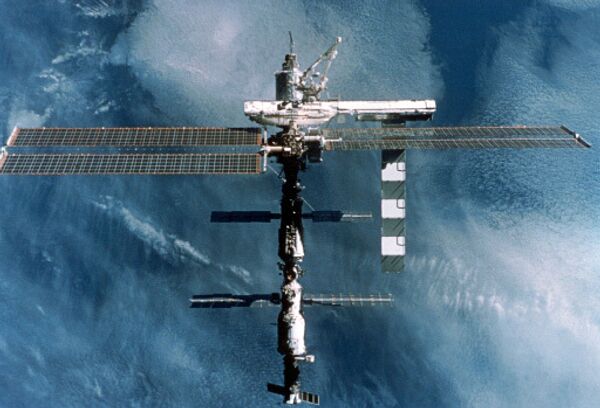MOSCOW, September 7 (RIA Novosti) - Japan will launch its first domestic cargo spaceship to the International Space Station ISS on September 10, a Russian space official said on Monday.
The spacecraft was built by Japan's space agency JAXA, and will lift off on board the country's new H-2B rocket. It will deliver about 4.5 metric tons of scientific equipment to the orbital station.
"The launch of the Japanese H-2B carrier rocket with the HTV-1 unmanned cargo spacecraft is scheduled for September 10, 2009 [at 17.01 GMT] from the Tanegashima Space Center in southern Japan," an official from Russia's Mission Control said, adding that the freighter is expected to dock with the ISS on September 17.
The spacecraft is a solar-powered cylinder about 10 meters long and 4.4 meters wide. It can haul up to 6 tons of cargo, but will be loaded with less cargo on its maiden flight.
JAXA and NASA officials earlier said the Japanese freighters "will be vital to support the space station's six-person crew once NASA's space shuttle fleet retires in the next year or so."
Russian and European unmanned freighters and the U.S. space shuttles have so far performed the task of bringing vital supplies and equipment to the orbital station.
Unlike the fully-automated cargo ships built by Russia and Europe, which can dock at the station with the use of the Kurs laser-guided docking system, designed and built by Russia's Energia corporation, the HTV-1 will be pulled to the ISS by a robotic arm operated by the ISS crew.
JAXA said it has spent about $680 million since 1997 to develop the HTV spacecraft.
The $220-million vehicle is expected to be "buried" in southern Pacific after spending a month docked with the ISS.




